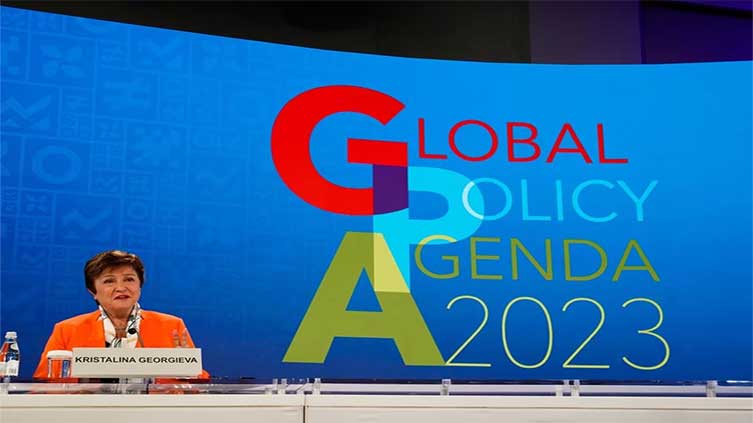IMF's Georgieva sees risk of supply chain security leading to new Cold War

Business
Georgieva said she has experienced the Cold War and don’t want it to be repeated
WASHINGTON (Reuters) - International Monetary Fund Managing Director Kristalina Georgieva on Thursday warned policymakers against the danger of a new Cold War as they ramp up efforts to secure their industrial supply chains amid geopolitical tensions between major powers.
"The question is, can we be more determined to enhance security of supplies but not push the world that far that we are into a second Cold War?" Georgieva told a news conference at the IMF and World Bank spring meetings in Washington. "I believe it is possible."
Georgieva, who grew up in Bulgaria during the Soviet era, said she experienced the Cold War and its impact in cutting off talented people from the world economy, and didn't want to see that repeated.
On Wednesday, Group of Seven (G7) finance leaders pledged to give low- and middle-income countries a bigger role in diversifying supply chains to make them more resilient and sustainable.
Their communique did not mention China by name, but the supply chain language fit in with "friend-shoring" efforts championed by U.S. Treasury Secretary Janet Yellen and other Western leaders to trade more with allies and become less reliant on the Asian manufacturing powerhouse for battery minerals, semiconductors and other strategic goods.
The IMF has warned that rising geopolitical tensions and the resulting fragmentation of the global economy could increase financial stability risks and potentially reduce global economic output by between 0.2% and 7%.
It's one of the key reasons that the IMF predicts the global economy will stay mired in low-growth mode for years.
Georgieva said policymakers might have to accept that development of new, more separated supply chains would involve some cost.
"Security of supplies and the reliable functioning of global supply chains is taking a new, higher priority seat in economic discussions," she said, citing the impact of both the COVID pandemic and the war in Ukraine. But she warned against going overboard and harming global trade flows.
"If we fail to be more rational, then people everywhere would be worse off. The middle class in each country would pay a price," Georgieva said. "So a bit more cool-headedness would take us a long way."

